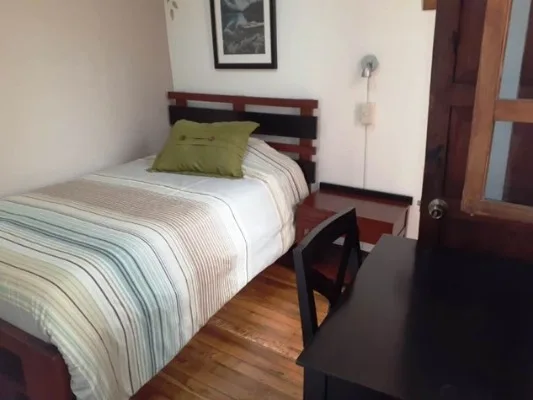Correa delivers an early Christmas present: A capital gains windfall tax on real estate
By Ramiro Crespo
Ecuadorian governments like to wait for the end-of-year holiday season to push through unpopular measures.
Holidays in November and, in particular, December – Quito’s week-long official foundation celebrations culminating December 6 as well as Christmas and New Year – provide popular distraction from everyday politicking. As a moderate inconvenience, this year’s Christmas and New Year, each on a weekend, provide somewhat less of a distraction than others. But president Rafael Correa is willing to go out on a limb nonetheless: On December 1, he resubmitted the controversial windfall real estate tax bill that he withdrew ahead of the papal visit of July 2015 after tens of thousands of Ecuadorians protested against it and legislation to raise inheritance taxes. Business groups have already called for it to be cancelled, while, as fast-track legislation, the congress has only this month to debate and vote on it, or else it will become law as Correa submitted it on January 1.
moderate inconvenience, this year’s Christmas and New Year, each on a weekend, provide somewhat less of a distraction than others. But president Rafael Correa is willing to go out on a limb nonetheless: On December 1, he resubmitted the controversial windfall real estate tax bill that he withdrew ahead of the papal visit of July 2015 after tens of thousands of Ecuadorians protested against it and legislation to raise inheritance taxes. Business groups have already called for it to be cancelled, while, as fast-track legislation, the congress has only this month to debate and vote on it, or else it will become law as Correa submitted it on January 1.
By submitting the law later, he separated it from the inheritance law that perhaps provoked protest to a greater extent than the real estate windfall and that congress passed, also resubmitted, mid-June. Now, he is moving to complete the package he insists will help fight inequality and cap “speculative” gains or those obtained from insider information, arguing that controlling swift real estate gains, in particular those obtained from public works, will help fight social inequality. In public, Correa has frequently said that real estate prices benefited dramatically surrounding the $43 million headquarters of the UNASUR building built in the far north of Quito near the Equator line, an unneeded white elephant paid by the spendthrift Correa government.

President Rafael Correa at UNASUR headquarter.
Other occasions will not be that easy to find. Real estate values in San Vicente, a coastal town, also benefited from a bridge across the mouth of the Chone river, given easier access to beachfront property. But elsewhere, one can be hard-pressed to find where public investment may have helped property prices to rise. The opposite can be possible, such as in the ill-conceived plan to smash a major overpass onto the already congested area of Plaza Argentina in Quito, the capital, proposed by center-right mayor Mauricio Rodas. The law makes no plans for compensation in the case where a property owner suffers a loss when this is inflicted by public works – like a new refinery in the neighborhood, quite literally a plan that would hit beach towns near Manta in the unlikely event that the refinery, another white elephant, gets funding.
Ecuador already has a 10% tax on gains from property sales, in some cases when the real estate is sold before a 20-year limit. In the latest iteration of the bill, Correa jerks this up to 75%, to be paid when the resale value of housing tops a formula based on the average interest rate obtained by cash deposits with maturities at least longer than 361 days. Municipal cadastral reviews establish taxable property values. In addition to urban real estate, the law now also aims to include rural areas, with the notable exemption of mining properties, which the government now aims to urgently develop, and for which it includes a 48-month tax break. The tax will also now have to be paid before the seller obtains his or her money. Business groups vehemently argue against the tax, as do conservative candidates running for office in the 2017 elections.
Indeed, while government officials insist the tax will benefit local officials in particular given that the proceeds are to go to municipal coffers, the conservative mayor of Guayaquil, Jaime Nebot, has strongly criticized the bill because it will likely reduce demand for real estate purchasing, “paralyzing construction and sales” and reducing real estate prices. “From January onwards, if the windfall tax passes, people will have in the state a new lazy and spendthrift partner,” Nebot added via his Twitter account. Additionally, the law poses risks of discretional involvement by local and national governments via the setting of interest rates by the government-controlled central bank and through the cadastral evaluations at the municipal level, which scandalized many in Quito when they were jerked higher under Rodas’s predecessor, the correísta Augusto Barrera.
Government meddling already served to inflate a bubbling real estate market from which it now appears to be wanting to suck the air out again: it created the BIESS bank, a mortgage entity for the social security institute, designed to stimulate middle-income demand for real estate by undercutting private banks, and in general inflated prices through its extreme public spending increases. Real estate prices might well have been expected to boom amid the recent years of high oil prices, but the government has played a particularly strong role in the past. Now, the government out of ideological reasons appears to be aiming to undermine confidence in the future. One opposition legislator has called it a death warrant for Correa’s own political vehicle. That remains to be seen. But for investor confidence, the tax plan is indeed strongly negative.
________________
Ramiro Crespo is Chairman of the Board of Quito-based Analytica Investments, http://analytica.ec





















